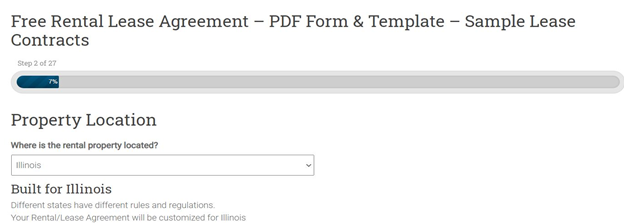The law of Illinois mentions the responsibilities for the landlords. How much security they can charge and what disclosures they must make before renting the property. Some penalties could be stringent for those who can’t comply with the law—for instance, illegally discriminating when selecting the tenants. At the same time, many things are already taken care of when you create a rental lease agreement in Illinois. For the rest, continue reading.
1-Anti-Discrimination Laws
Even before you advertise a vacant apartment, you should understand the fair housing laws. It includes the rental advertisement, questions that are asked in the rental application, or when meeting the prospective tenants or how you deal with tenants who rent from you. If you fail to know or follow the law, it may result in discrimination complaints and lawsuits.
You can reject an application based on factors like bad credit history, negative references from previous landlords, past behavior, late payments that make them a risk. But, you can’t discriminate against the prospective tenants based on their religion, national origin, sex, and mental or physical disability. The state of Illinois also prevents discrimination on the grounds of sexual discrimination or gender identity.
2-Renting Payment and Eviction
Every landlord wants their tenants to pay the rent on time and in a hassle-free way. However, if you’re going to raise the rent or evict a tenant who could not pay the rent, you need to be sure that you have complied with the rules and procedures. State laws mention how much time a tenant has to pay rent before the landlord can file an eviction.
3-Follow Security Deposit Limits and Return Rules
Security deposits are amongst the leading cause of disputes between landlords and tenants. As a landlord, you should know the state rules when the deposit should be returned. It should be 30 to 45 days after the tenant has moved out based on whether the tenant disputes the landlord’s deductions.
4-Livable Home
The landlord is required to keep the rental premises livable in Illinois. If you can’t take care of the critical repairs, like leaking pipes, the tenants may move out and seek other options. You should have a maintenance and repair system that will prevent problems like tenant holding the payment of rent or hazards due to defective conditions in the rental.
5-Provide Written Lease or Rental Agreement

Illinois Rental Lease Agreement
The rental lease agreement decides the basis of your relationship with the tenant. It contains the various important details like how long can tenant occupies the rental and the amount of the rent. The rental agreement gives different rules that your landlord and the tenant should follow.
Problems arise when the landlords include untenable clauses in the lease or when failing to make the required disclosures. Even if the rental lease agreement Illinois doesn’t cover every detail, it helps to avoid various kinds of disputes by using a valid and legal lease and rental agreement that informs the tenants of their responsibilities.
6-Make Required Disclosures
Following the law of Illinois, you need to make certain disclosures to the tenants, like the rent concessions. The landlords must also comply with the required disclosures for hazards.
7-Legal Rights of Tenants
It is illegal to retaliate in Illinois. For instance, by trying to raise the rent or evict the tenant when he complains about the unsafe living condition. You can avoid these issues by maintaining the documents about the repair and facets of the relationship with the tenant.
Form. Legal Helps You
Once you have created the rental lease agreement Illinois at Forms.Legal and handed a copy of it to the tenant, most of the issues are addressed. For the rest, talk to your tenant. Sign up now to create the rental lease agreement for free!